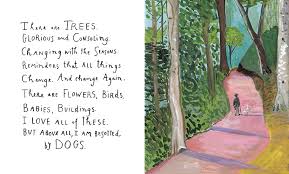"The most certain sign of wisdom is cheerfulness."
"Happiness involves working toward meaningful goals."
"I set forth a humble and inglorious life; that does not matter... Each man bears the entire form of the human condition."
We Should Not Judge of Our Happiness Until after Our Death... Montaigne on self-esteem: A Guide to Happiness
- David Hume & midlife crisis
- David Hume's essays on happiness
- David Hume, Essays Moral, Political, Literary
- David Hume, Simon Blackburn on
- David Hume, The Sceptic
- David Hume, a new perspective
“Reading and sauntering and lounging and dosing, which I call thinking, is my supreme Happiness.”
"Tendency to joy and hope is true happiness; tendency to fear and melancholy is a real unhappiness."
"I possess the same ardour as ever in study, and the same gaiety in company."
- Bertrand Russell on boredom and why a capacity for "fruitful monotony" is vital for happiness
- Bertrand Russell on freethought and propaganda
- Bertrand Russell on immortality and the good life
- Bertrand Russell's Nobel speech
- Is happiness still possible?... zest
- Russell's "Conquest"-closing thoughts
"The secret of happiness is this: let your interests be as wide as possible , and let your reactions to the things and persons that interest you be as far as possible friendly rather than hostile."
If we were to ask the question: “What is human life's chief concern?” one of the answers we should receive would be: “It is happiness.” How to gain, how to keep, how to recover happiness, is in fact for most men at all times the secret motive of all they do, and of all they are willing to endure.
"The really vital question for us all is, What is this world going to be? What is life eventually to make of itself?"
"To pessimism and despair, the healthy-minded respond: 'stuff and nonsense, get out into the open air!'"
"The solid meaning of life is always the same eternal thing,— the marriage, namely, of some unhabitual ideal, however special, with some fidelity, courage, and endurance; with some man's or woman 's pains.—And, whatever or wherever life may be, there will always be the chance for that marriage to take place."
"There are unhappy men who think the salvation of the world impossible. Theirs is the doctrine known as pessimism. Optimism in turn would be the doctrine that thinks the world's salvation inevitable. Midway between the two there stands what may be called the doctrine of meliorism, tho it has hitherto figured less as a doctrine than as an attitude in human affairs. Optimism has always been the regnant DOCTRINE in european philosophy. Pessimism was only recently introduced by Schopenhauer and counts few systematic defenders as yet. Meliorism treats salvation as neither inevitable nor impossible. It treats it as a possibility, which becomes more and more of a probability the more numerous the actual conditions of salvation become.It is clear that pragmatism must incline towards meliorism..."
"Remember when old December's darkness is everywhere about you, that the world is really in every minutest point as full of life as in the most joyous morning you ever lived through; that the sun is whanging down, and the waves dancing, and the gulls skimming down at the mouth of the Amazon, for instance, as freshly as in the first morning of creation; and the hour is just as fit as any hour that ever was for a new gospel of cheer to be preached. I am sure that one can, by merely thinking of these matters of fact, limit the power of one's evil moods over one's way of looking at the cosmos." More James Quotes...
“It is by being fully involved with every detail of our lives, whether good or bad, that we find happiness, not by trying to look for it directly.”
“On the job people feel skillful and challenged, and therefore feel more happy, strong, creative, and satisfied. In their free time people feel that there is generally not much to do and their skills are not being used, and therefore they tend to feel more sad, weak, dull, and dissatisfied. Yet they would like to work less and spend more time in leisure. What does this contradictory pattern mean? There are several possible explanations, but one conclusion seems inevitable: when it comes to work, people do not heed the evidence of their senses. They disregard the quality of immediate experience, and base their motivation instead on the strongly rooted cultural stereotype of what work is supposed to be like. They think of it as an imposition, a constraint, an infringement of their freedom, and therefore something to be avoided as much as possible.”
"...one needs to learn to control attention. In principle any skill or discipline one can master on one’s own will serve: meditation and prayer if one is so inclined; exercise, aerobics, martial arts for those who prefer concentrating on physical skills. Any specialization or expertise that one finds enjoyable and where one can improve one’s knowledge over time. The important thing, however, is the attitude toward these disciplines. If one prays in order to be holy, or exercises to develop strong pectoral muscles, or learns to be knowledgeable, then a great deal of the benefit is lost. The important thing is to enjoy the activity for its own sake, and to know that what matters is not the result, but the control one is acquiring over one’s attention.”
“...success, like happiness, cannot be pursued; it must ensue...as the unintended side-effect of one's personal dedication to a course greater than oneself.”
“To overcome the anxieties and depressions of contemporary life, individuals must become independent of the social environment to the degree that they no longer respond exclusively in terms of its rewards and punishments. To achieve such autonomy, a person has to learn to provide rewards to herself. She has to develop the ability to find enjoyment and purpose regardless of external circumstances.”
“A joyful life is an individual creation that cannot be copied from a recipe.”
― Mihaly Csikszentmihalyi
==

 .
.
 ==
==
 "I go for a walk through the forest near my house, just as Aristotle walked along the beach at Assos," writes Arthur Herman, recounting the bounteous profusion of nature's teeming, towering, bewildering, constantly changing flora and fauna at his feet. "This is nature, the real world buzzing and blooming around us."
"I go for a walk through the forest near my house, just as Aristotle walked along the beach at Assos," writes Arthur Herman, recounting the bounteous profusion of nature's teeming, towering, bewildering, constantly changing flora and fauna at his feet. "This is nature, the real world buzzing and blooming around us."
"Abundant blessings previously acquired"... Older, wiser, happier... Happily home


==
When I go out for a walk, there is so much that makes me happy to be alive. Breathing. Not thinking. Observing. I am grateful beyond measure to be part of it all. There are people, of course, heroic and heartbreaking, going about their business in splendid fashion.
There are the discarded items — chairs, sofas, tables, umbrellas, shoes — also heroic for having lived life in happy (or unhappy) homes.
There are trees. Glorious and consoling. Changing with the seasons. Reminders that all things change. And change again. There are flowers, birds, babies, buildings.
I love all of these. But above all, I am besotted by dogs
Jennifer Michael Hecht on happiness... nyt review... @dawn
Our journey through the forest struck Plato's and Aristotle's heirs, the Hellenistic Cynics, Epicureans, Stoics, and Skeptics, as an opportunity to make themselves at home there and everywhere. Initially, writes Jennifer Michael Hecht, they "felt a desperate desire to get out of the seemingly endless, friendless woods." But thanks to the applied philosophical therapeutics of their 'graceful-life philosophies' they learned to love the place. "Hang a sign that says HOME on a tree and you're done."
.JPG)
==.JPG)
"Abundant blessings previously acquired"... Older, wiser, happier... Happily home


C&H on the point of living
Also worth noting, before we ring down the curtain on this class, is the writing advice of poet Jane Kenyon (it's her birthday), which doubles as good happiness widsom:
“Be a good steward of your gifts. Protect your time. Feed your inner life. Avoid too much noise. Read good books, have good sentences in your ears. Be by yourself as often as you can. Walk. Take the phone off the hook. Work regular hours.”
And, Monty Python's"Meaning of Life" secret of happiness:
Well, it's nothing very special. Try to be nice to people, avoid eating fat, read a good book every now and then, get some walking in, and try and live together in peace and harmony with people of all creeds and nations... Oh, well, there we are. Here's the theme music. Goodnight.
More seriously, Bertrand Russell again: happy people "connect with the stream of life," they don't isolate themselves in forgotten tributaries of self-obsession. John Dewey similarly spoke of the "continuous human community in which we are a link."
And Sissela Bok on overcoming melancholy... and John Lachs's "Stoic Pragmatism," In Love With Life...
But there may just not be time to get it all in. So maybe we'll just cut to the end, that's no end at all. The last thing I say to every class, from William James's deathbed: "There is no conclusion. What has been concluded, that we might conclude in regard to it? There are no fortunes to be told, and there is no advice to be given. — Farewell!"
Talk to you later.




